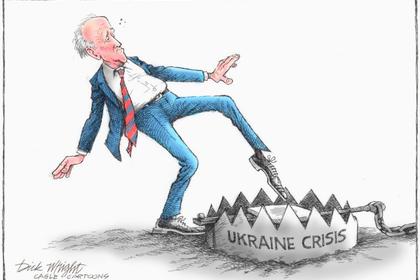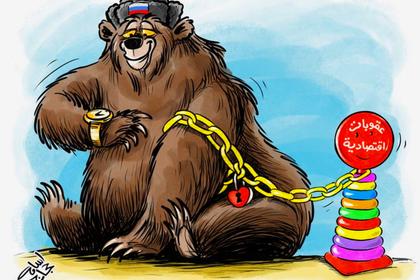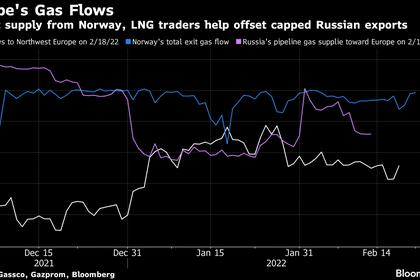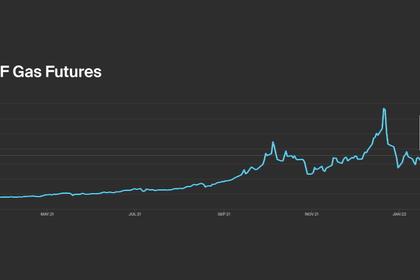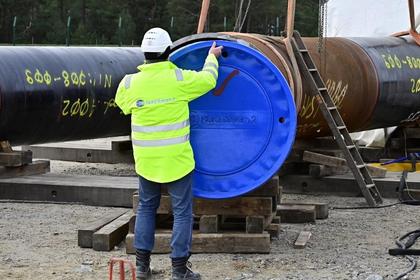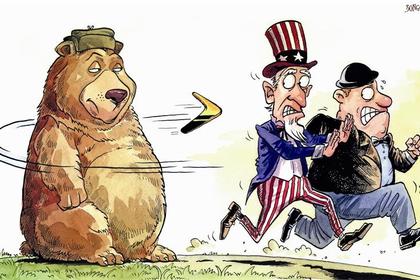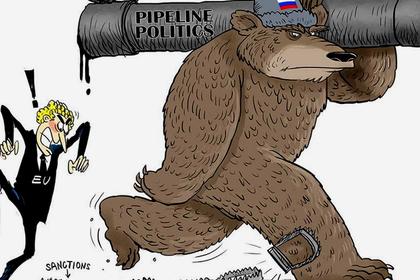
EUROPEAN, JAPAN RUSSIA SANCTIONS
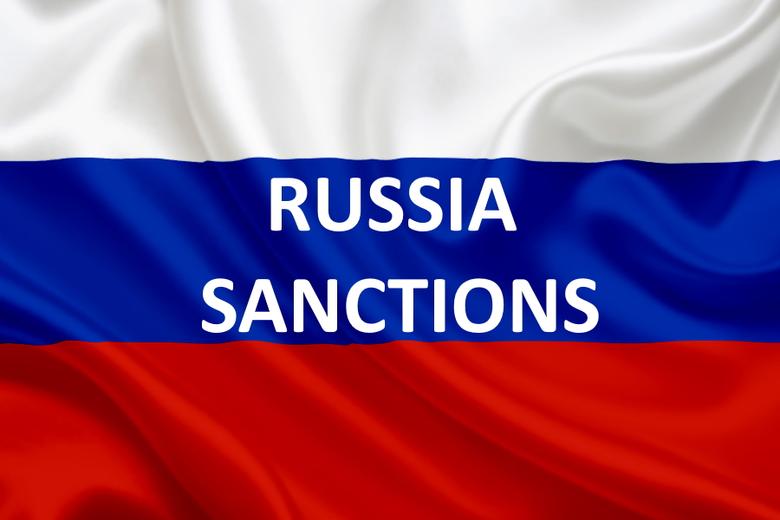
PLATTS - 28 Feb 2022 - The European Commission and Japan intensified their plans for Russia sanctions on Feb. 27 as the US and EU coordinated on details to implement the pending ban on Russian banks using the SWIFT international payment system that could impact the trading of Urals crude oil.
Meanwhile, crude oil futures opened substantially higher Feb. 27 as fighting intensified in Ukraine. At 2320 GMT, NYMEX April WTI shot up by $5.39/b to $96.98/b and ICE April Brent gained $4.97/b to $102.90 -- shattering the $100/b threshold. NYMEX March RBOB was 6.37 cents higher at $2.7910/gal.
While the G7 nations and their allies plan to carve out exemptions for energy to avoid major supply disruptions, pressure is mounting to include some energy sanctions. Even if the oil and gas carve-outs remain, SWIFT sanctions could still impact some crude trading and flows.
Comparing SWIFT to "Gmail for banks," a US senior administration official said one option is to "mark" the messages between banks on energy payments and exempt those specific payments.
"But the second path is to choose our institution -- choose the institutions that we de-SWIFT wisely," the official said. "So, we know where most of the energy flows occur, through which banks they occur. And if we take that approach, we can simply choose the institutions where most of the energy flows do not occur."
After the preliminary SWIFT sanction plans were announced Feb. 26 by the EU and US, Japan said Feb. 27 it would join in the effort to bar designated Russian banks from the SWIFT system.
In response to the tougher sanctions, Russian President Vladimir Putin on Feb. 27 ordered nuclear deterrent forces on high alert, further escalating tension.
And a bevy of other actions against Russia continued Feb. 27:
- UK Foreign Secretary Liz Truss floated the idea of G7 countries imposing limits on the amount of oil and gas they can import from Russia as part of a widening raft of economic measures and sanctions in response to the invasion of Ukraine.
- Energy sanctions "remain on the table," White House press secretary Jen Psaki said, a marked change in tone after senior Biden administration officials have insisted for days they intended to carve out energy trades from any financial restrictions.
- Ukraine's foreign minister urged Western governments to impose a "full embargo for Russian oil and gas."
- BP said it will "exit" its near 20% stake in Russia's largest oil producer, Rosneft, in response to the Kremlin's decision to invade Ukraine. Rosneft accounts for about half of BP's booked reserves and one-third of its overall oil and gas production. BP did not say whether it intends to find another buyer for its stake, sell the equity back to Rosneft or just write-off the asset.
- Norway's $1.33 trillion sovereign wealth fund -- the world's largest -- said it would divest its Russian holdings.
- Germany will accelerate work to build two LNG terminals in the country to help reduce dependence on Russian gas imports, Chancellor Olaf Scholz said. Germany has no LNG import terminals at present, with two projects currently in the development stage -- the 8 Bcm/year terminal at Brunsbuttel and a 12 Bcm/year facility at Stade.
As for crude oil, Russia's key grade shipped to Europe and the US is medium sour Urals. Although the SWIFT ban does not target oil specifically, trading companies use banks as intermediaries for transactions, letters of credit and clearing services.
"It will likely make many buyers more hesitant to purchase Russian oil. That will tend to drive down the price of Russian crude oil even more until it ultimately clears outside of its traditional markets in Europe," said Rick Joswick, Head of Global Oil Analytics at S&P Global Platts.
Before the SWIFT sanction, Urals crude was assessed at its lowest level ever relative to Dated Brent on Feb. 24 but edged 7.5 cents/b higher Feb. 25 amid a lack of indications during the Platts Market on Close assessment process.
The following is a breakdown of how this crude is traded.
Key risks
How will sanctions and exclusion from SWIFT impact trade?
-- Financial sanctions on trading with Russian companies include restricting Russia's access to the US dollar, reduction in the availability of US dollar credit and the SWIFT financial messaging system.
Traders may use "sleeving" through a third party if necessary, although that involves a "sleeving" fee and additional financial risk. Russia has also trialed payments in alternative currencies and developed an alternative system to SWIFT.
Under normal circumstances, Urals is a reliable crude stream for traders with the exception of the 2019 contamination incident and adverse sea conditions at its major export terminals.
-- Ports are regularly impacted by adverse weather conditions.
Weather conditions frequently impact delivery times for seaborne supplies especially for loadings from Novorossiisk in the Black Sea.
Contamination of oil in the Druzhba pipeline in 2019 led to major supply disruptions.
Key players
Russia is the largest producer in the OPEC+ alliance alongside Saudi Arabia, accounting for about 10% of total global supply. Urals crude is a staple for refiners in Northwest Europe and the Mediterranean.
-- Key buyers include Germany, Italy, the Netherlands, Poland, Finland, Lithuania, Greece, Romania, Turkey and Bulgaria. Russia is also a major supplier to the US and China.
Urals producers -- Rosneft, Gazprom Neft, Socar, KazMunaiGaz, Surgutneftegaz.
Urals traders -- Glencore, Vitol, Trafigura, and Gunvor.
-- BP has the biggest interest of any of the major international oil companies in Russian oil through its near 20% shareholding in the giant Rosneft, which itself accounts for 6% of global supply.
Majors -- Shell, BP, Totalenergies, Chevron, ExxonMobil, Eni, Repsol, Conoco, Lukoil.
Refiners of Urals -- Saras, ERG, Philips 66, Hellenic Petroleum, Neste, PKN Orlen, Preem, Paz Oil, INA, Tupras, OMV.
Trade flows
Russian Urals grade has the biggest share of Europe's market for crude, supplying about a quarter of the region's oil and condensates imports.
-- Around 1 million b/d of Urals is shipped to market via the major Druzhba pipeline.
The Northern branch of the line runs through Belarus and supplies refineries in Poland and Germany. The Southern branch runs through Ukraine, and supplies refineries in Hungary, Slovakia and the Czech Republic.
Most of this crude is supplied under long-term contracts. Druzhba always contains technical oil, which allows crude to be delivered immediately following conclusion of contract paperwork.
-- Between 1.5-1.8 million b/d of Urals is also shipped via the ports of Primorsk and Ust-Luga on the Baltic Sea, and Novorossiisk on the Black Sea.
Crude shipped from the Baltic Sea ports takes an average of 5-6 days to reach Rotterdam and is supplied in Aframax tankers of around 720,000 barrels. Crude shipped from Novorossiisk takes around 5-7 days to reach Augusta, Georgia, and is shipped on tankers of either 586,000 barrels, or 1 million barrels.
Available volumes are published in a loading program approved by the energy ministry, with details provided for each 10-day period of the month, and then a final monthly program.
Programs are sometimes amended due to disruptions including bad weather. These programs are released to market participants in stages. The first five days of the program are released on the 15th of the preceding month, followed by the first 10 days and subsequently the full month a few days later.
-- Another route to market for Russia is the Eastern Siberia Pacific Ocean (ESPO) blend crude into Asia.
Russia is the second-largest crude supplier to China, delivering 1.6 million b/d of crude in 2021, according to China's General Administration of Customs.
Russia's seaborne spot crude exports to China include ESPO Blend loaded from Kozmino, Sokol from De-Kastri and Sakhalin Blend from Prigorodnoye, as well as Urals loaded from the Russian Black Sea port of Novorossiisk.
Methods of trading
Urals is traded in three main ways -- through term contracts, tenders, and on the spot market.
-- Term contracts
Term contracts cover amounts of crude to be supplied each month. They are often associated with forward contracts, in which a certain volume and quality is supplied each month or quarter. The most common is Rosneft term contracts, in which participants purchase Rosneft's equity in the Urals market over a fixed period of time.
Typically, trading houses purchase term contracts and then resell cargoes in the spot market. Under this system, the seller informs the buyer of volumes available, loading dates and locations, and amounts are then agreed, usually within one calendar day.
The buyer nominates a vessel to the seller no later than five calendar days before the first day of the nominated loading date range, stating the vessel's name, tonnage, draught and other operating characteristics. Within one business day from the date of vessel nomination the seller accepts the vessel or requests a substitution.
-- Tenders
There are two forms of tenders in the Urals market. Firstly, there are sell tenders, where entities with equity in the Urals market award cargoes to the highest bidder. Sell tenders involve companies offering a set cargo loading on specific dates and quality. The most common is Surgutneftegaz tenders in which participants are allowed to submit bids for cargoes offered by Surgut, the tender is awarded to the buyer with the highest bidder.
Secondly, refiners will also offer buy tenders. This includes PKN and Hellenic which often request a set amount of crude and quality to load on certain dates. This tender is awarded to the seller with the lowest offer from market participants. Unlike other markets, tender data is easily shared among market participants, increasing liquidity and transparency in the market.
-- Spot market
Most Russian crude is originally sold on a free on board (FOB) basis. This means that responsibility for the cargo after it is supplied lies with the buyer. The alternative, cost, insurance and freight (CIF), places responsibility for delivery to the destination on the seller. Unlike other grades in the region, Urals trades very promptly, with spot trading occurring only a couple of weeks before cargoes are loaded.
Crude tenders are supplied under letters of credit, which are largely dollar denominated. Payment terms are usually within 30 days and are mainly dollar denominated.
A common example of this is the frequency of Urals trading on the Platts Market on Close assessment process.
-----
Earlier:
